
Spoilt for Joyce: Irish writers turn to Nora for new insights

Writer Nuala O’Connor, one of the main guests at the Irish festival in Fribourg, talks about the long shadow of James Joyce and her fascination with his wife, Nora.
Switzerland and Ireland seem like two worlds apart. There has never been any kind of special relationship between the two countries, no historical events linking them in any outstanding way, not even sharing significant migration waves.
Still, musicians, filmmakers, writers and academics are slated to offer more than a simple overview of the current state of Irish culture, including whisky, in the (mostly) French-speaking city of Fribourg, where the first festival of Irish art and cultureExternal link takes place from October 6-8.
But if Fribourg, like Switzerland in general, is certainly a world away from Ireland, Zurich is forever inscribed in the grand history of Irish literature. That’s where James Joyce lived with his family during the First World War, and where he wrote most of his magnum opus, Ulysses.
Ulysses is arguably one of the most, if not the most, influential literary works in English of the last century, and exactly a century it has been: last year Joyceans all over the world celebrated the centenary of its publication.
Since then, it has been virtually impossible for any Irish writer to escape the long shadow of Joyce (as well as another illustrious Irish expatriate, Samuel Beckett).
It’s a fateful irony that both writers turned their backs on Ireland, living most of their adult lives outside the country, never to return. As a younger – and poorer – Irish expatriate, Beckett also worked as an assistant to Joyce in Paris, where the latter moved after the war.
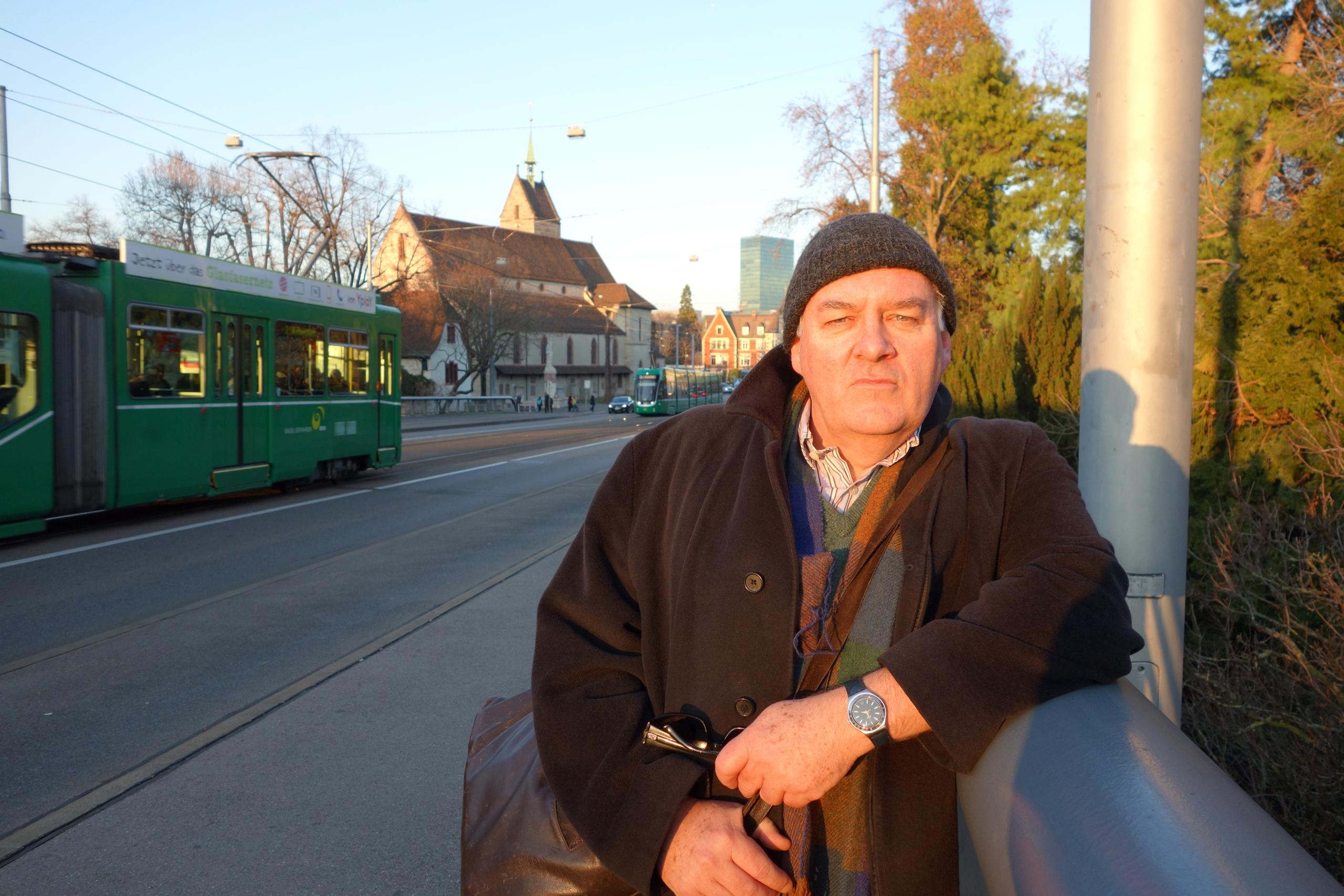
More
Irish author maps out literary Switzerland
Although the city of Dublin is thoroughly mapped out and turned into a sort of mythological setting throughout Ulysses, Joyce’s expat life spent in Trieste, Zurich and Paris was much more decisive for his literary career than any part of the British islands.
“He had a very complicated relationship with Ireland,” Nuala O’Connor told SWI swissinfo.ch ahead of the Fribourg festival. O’Connor hasn’t turned her back on Ireland, but she has developed a special connection to Switzerland.
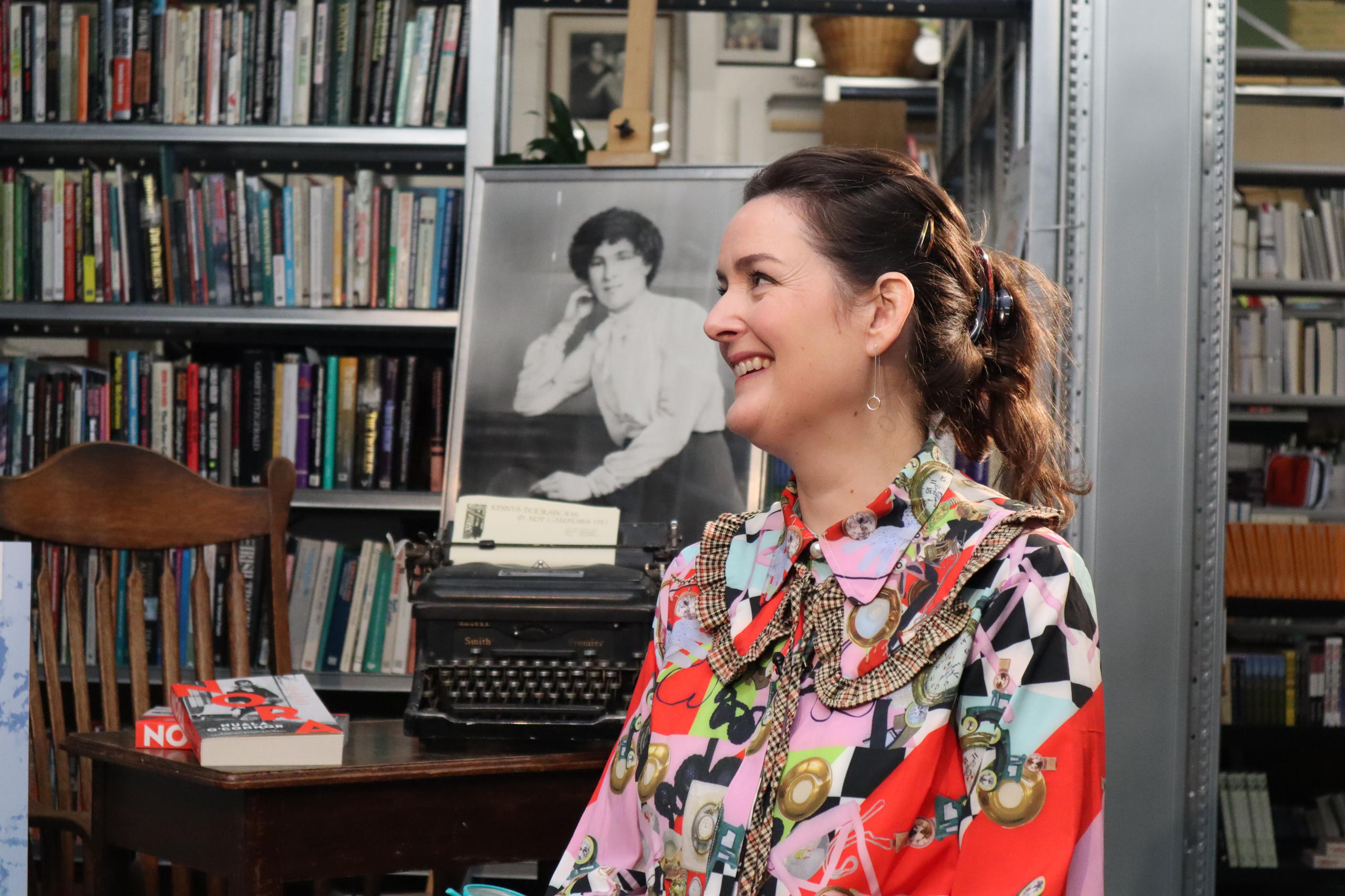
She had her first experiences away from home in the Swiss mountains, first as a scout in her teens and a few years later working in a ski resort. More recently, she made extensive travels to Zurich, as well as to all the places where the Joyces lived, while writing a fictionalised biography of Nora Barnacle Joyce, James’s partner through thick and thin and the trigger of Ulysses.
The novel takes place in one day, June 16, 1904, which in real life marked the first romantic (and erotic) date of the young writer and the humble chambermaid Nora. The date became known as Bloomsday, after the main characters, Leopold and Molly Bloom, and is celebrated in several cities all over the world – although, of course, none compares with the festivities in Dublin.
O’Connor’s Nora, published in 2021, reads almost like a soap opera, with its sets taking place in the intimacy of the Joyces’ household. Author of several poetry collections, biographies and novels, O’Connor aimed to give voice to a woman who was fundamental in Joyce’s literary pursuits.
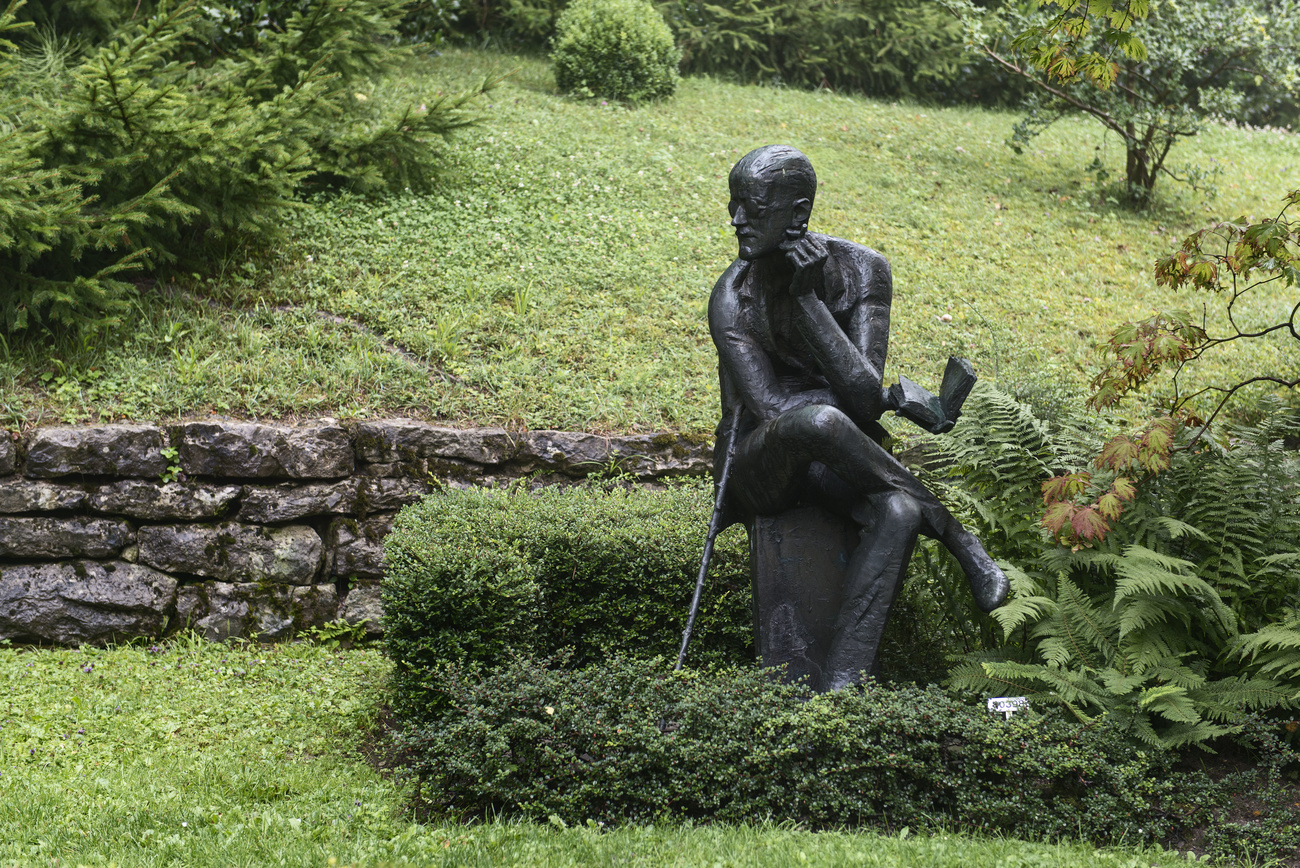
SWI swissinfo.ch: What led you to Nora?
Nuala O’Connor: I’ve been writing these kinds of biographical fictions for a few years, and I’m very drawn to maverick women. I am originally from Dublin, but I moved to Galway [Nora’s hometown] about six years ago, where I started to attend the yearly Bloomsday event at the Nora Barnacle Museum.
It surprises me that I didn’t decide to write about Nora sooner, but maybe I had to work a bit on other biographical fictions before I could tackle something as big as Joyce. But it all started when I was studying Italian and had to write an essay about Joyce’s time in Trieste.
While I was researching that, reading the biography of Nora by Brenda Maddock, I got really interested in her. How did Nora feel about her life with Joyce? How did she feel about switching languages, switching homes, raising children with very little money?
I wrote a short story, called Gooseen, and it did well, was published in Granta, and won a prize. But I knew I wasn’t finished with Nora.
SWI: How do you gauge Nora’s importance in Joyce’s work overall?
N.O.: Joyce was a great man for getting her to tell him her life story and then using those stories in his work. She was a very fluent and interesting talker. She was a bit of a character. She didn’t filter her speech, so she just tended to blurt out what she thought about people. And she was very observant, and she had great interest in language.
So Joyce was clearly delighted with this woman, not just for her straight talk and devotion to style, which he shared. But she had a kind of confidence that he also had, a sensual confidence, a sort of a maverick confidence, an openness to adventure and novelty.
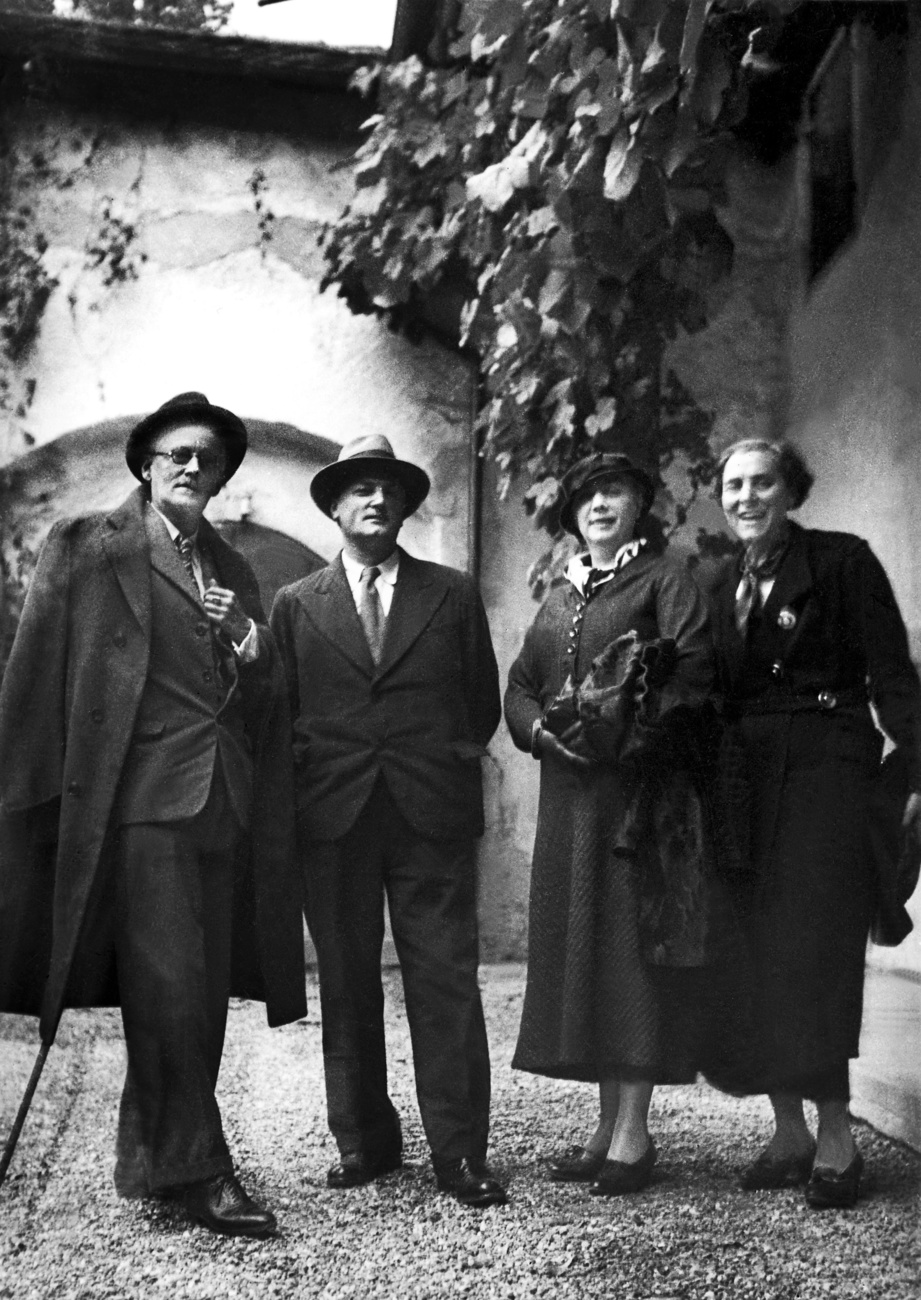
SWI: A lot of people, including some of Joyce’s biographers, thought they were very mismatched…
N.O.: In fact they were an excellent match. She liked educated men and he was not a snob. And Joyce needed helpers. He was one of those sensitive and nervy individuals who just needed support. And he found it basically in women. As for [biographer] Edna O’Brien, I don’t fully agree with her stance on Nora.
SWI: How so?
N.O.: I have a different understanding of Nora than Edna has. I’m not going to diss Edna O’Brien, because obviously I have huge respect for her, and I love her as a writer and as a woman. But I think my approach to Nora is a bit more generous.
SWI: Is it because Nora is the centre of your book?
N.O.: When you’re doing a project like this, I suppose you bring your own biases and your own filters. And so I come out as a mother, as a feminist, as someone who wanted to celebrate Nora and her contribution to the whole Joyce project. She was his rock and his muse, but she was also his minder. She made sure he got time to write.
She had respect for the writing, but maybe not for the work. She was a bit jealous of Molly Bloom, realising that Molly was an amalgam of herself and other people. They had lots of friends in Zurich and at least to one of them, the artist Frank BudgenExternal link, Nora expressed her disdain for Molly.
I think that’s hilarious, because Joyce’s ideal of a woman was rather ‘RubensExternal link-esque’ and he was always trying to get Nora, who was quite slight, to fatten up. She probably resented Molly in the sense of, oh, that’s the kind of woman he fancies the most.
SWI: So this jealousy is quite understandable, as it referred to Joyce rather than the character of Molly?
N.O.: This rivalry may sound funny, but she didn’t think Ulysses was a funny book. She would express these opinions very freely in company. I think Joyce was a bit wounded. I personally find Ulysses extremely funny.
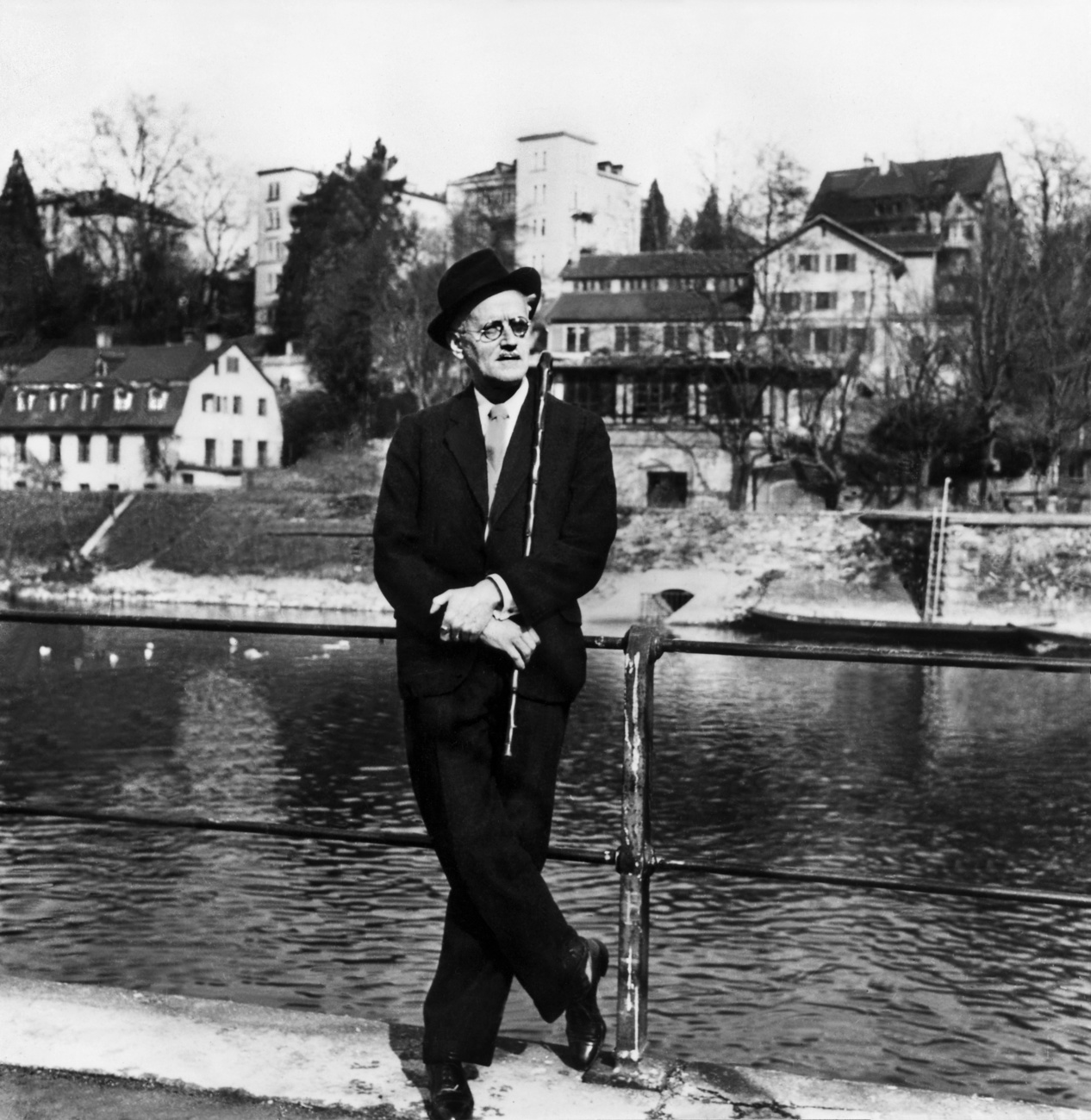
SWI: Which is what every Ulysses fan will say when asked why they love the book so much. What about his other books?
N.O.: She liked Finnegans Wake. He wrote it for her, and it was such an experiment, it’s almost impenetrable. But it’s like an extended poem of language, I suppose. For some reason, Nora loves the sound of it and just preferred it to Ulysses.
SWI: For an Irish writer today, is it possible to escape the long shadow of Joyce?
N.O.: Not really, because Joyce, and Beckett, they are gods, and they were both doing such different things with language. We’re very proud of them. Sometimes it can be difficult when you read Ulysses and find the relentless chauvinism in it, but that is probably just Joyce commenting on the mores of his era rather than Joyce being…
SWI: Obnoxious?
N.O.: Oh yeah, because he loved women. He valued women so highly, from his Aunt Josephine to Nora to his daughter Lucia, who was his preferred child, to [Joyce’s rich sponsor] Harriet Shaw Weaver and Sylvia Beach [who published Ulysses against all odds] and so many others who basically funded his life.

SWI: Today Joyce is an Irish national icon. However, it is not just Joyce who had a complex relationship to his homeland, but also the other way round.
N.O.: It’s such a complex relationship, Joyce and Ireland, Ireland and Joyce. While writing Ulysses in Zurich, when he met Irish people, he would sit them down and thoroughly mine them for information about the streets of Dublin and if that shop’s still there, who’s next door to that, and so on. His aunt would send him bundles of newspapers. He kept in touch with Ireland hugely.
But he was not in favour of the kind of warfare that was occurring in Ireland against the British. He was anti-violence all his life. He didn’t approve of the people who rose up in 1916. He felt betrayed by Ireland in many ways, and in the end, he was proved correct because they wouldn’t repatriate his body when he died because of the shocking stuff he wrote.
And he really wasn’t celebrated in any proper way here until about the 1960s, when the universities rolled in and began to teach his works. It wasn’t taught here. It wasn’t celebrated widely. Now, obviously, he’s a tourist icon. We’re great at celebrating dead writers here. Particularly males.
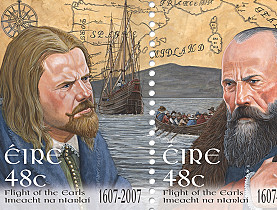
More
When Irish history met Swiss hospitality
Nuala O’Connor is appearing at the Irish Festival Fribourg/Freiburg in collaboration with Ireland’s long-running Listowel Writers’ Week festival.
Edited by Thomas Stephens

In compliance with the JTI standards
More: SWI swissinfo.ch certified by the Journalism Trust Initiative
















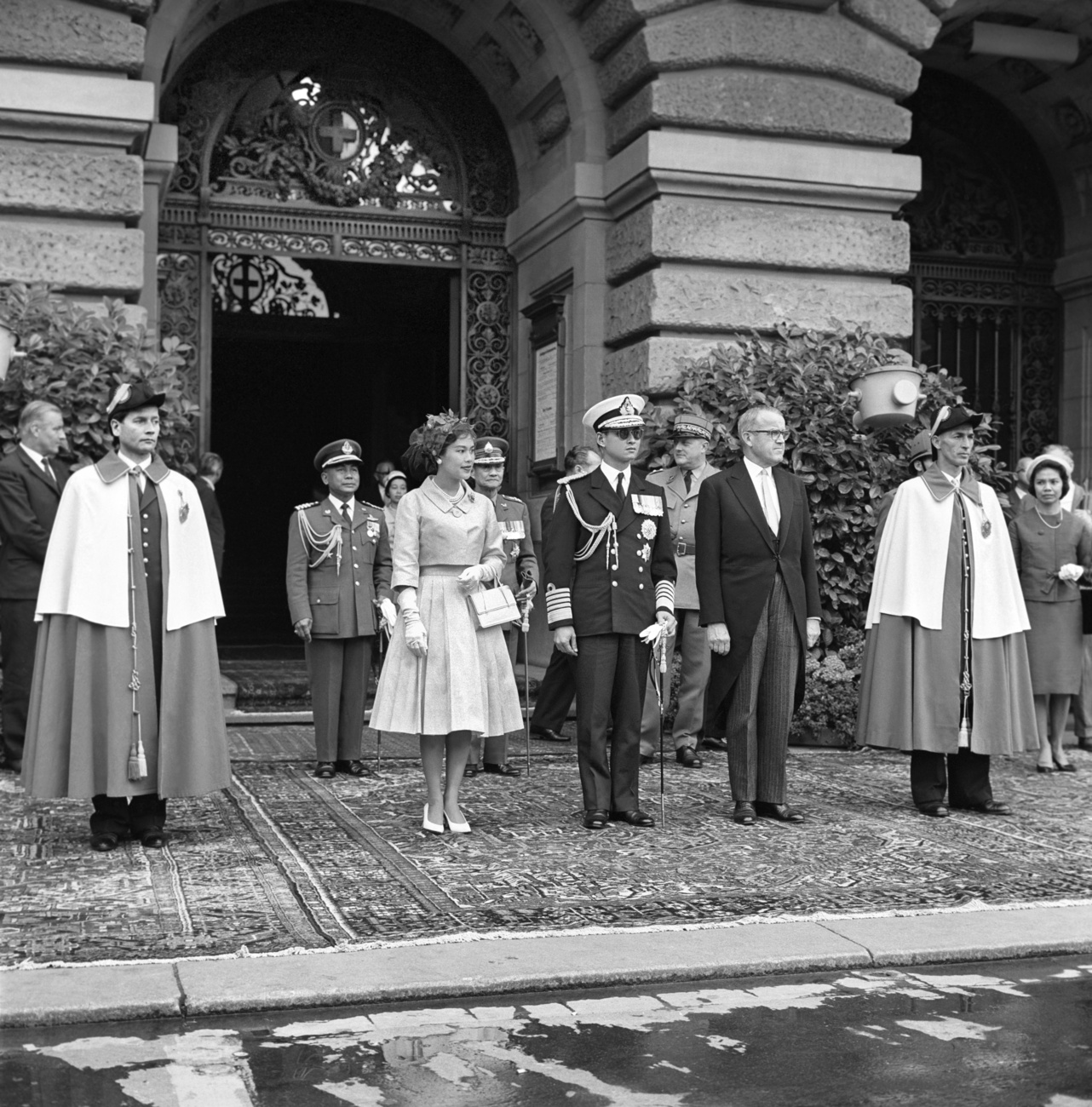











You can find an overview of ongoing debates with our journalists here . Please join us!
If you want to start a conversation about a topic raised in this article or want to report factual errors, email us at english@swissinfo.ch.